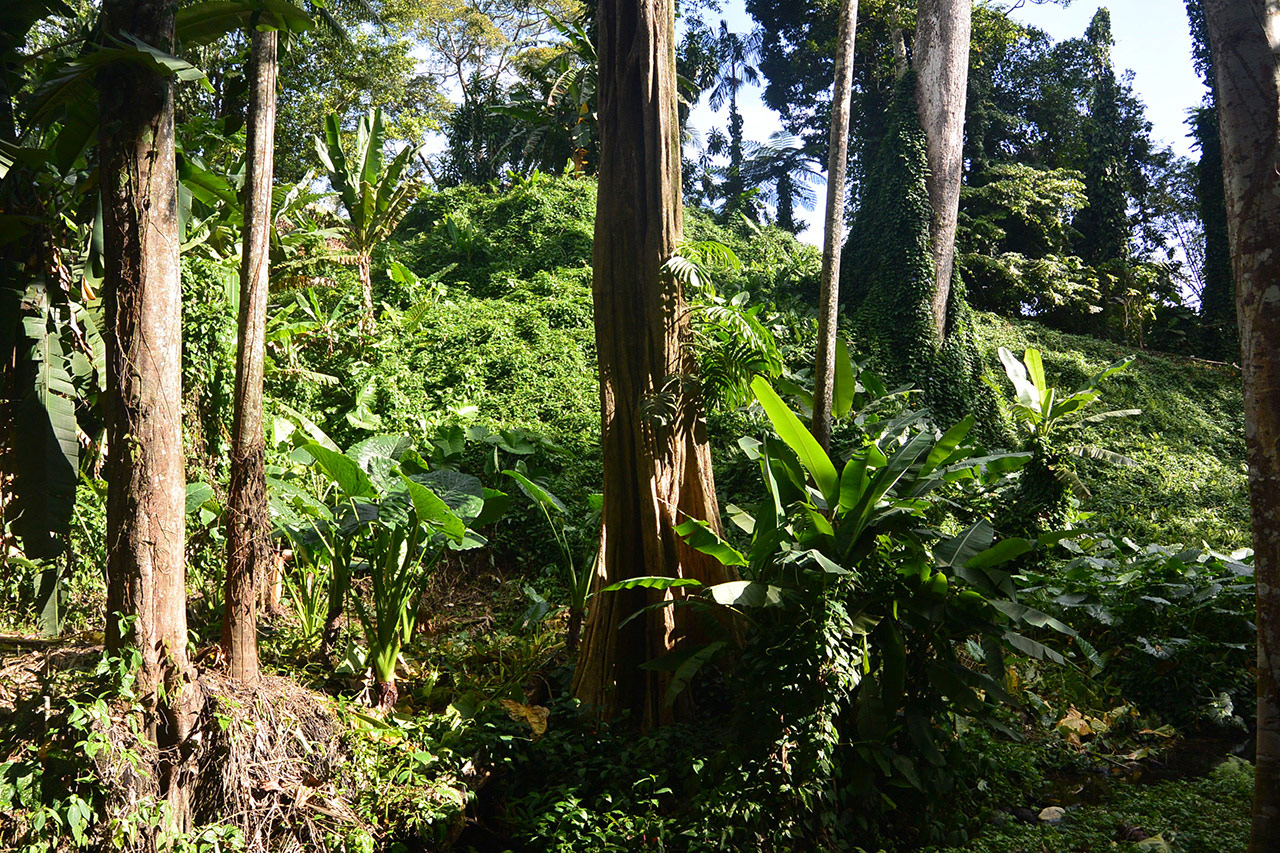The Papua New Guinea Forest Research Institute (FRI) is charged with, among other things, the responsibility to provide through research, scientific information and basis for the sustainable management of Papua New Guinea’s forests. As such the Botanic Gardens falls under Forest Biology program, one of the four research programs of PNGFRI.
Research activities within FRI are arranged within four programmes: sustainable forest management; planted forests; forest biology and national botanic garden. Two other support programmes: technical services and administration, provide services to ensure that resources are available to undertake approved research and that the results of research are communicated to those who need them.
Sustainable forest management programme
The major objective of this programme is to provide the essential data needed for forest managers to sustainably manage Papua New Guinea’s natural forest resource and to develop and refine silvicultural techniques to improve the forest stand quality hence increase the value of the forest to benefit the resource owners and the nation as a whole. Presently, the three major priority projects under this programme include;
(a) Tree growth and yield studies
(b) Silvicultural techniques
(c) Ecosystem management
Planted forests programme
This programme has four major projects:
Species screening:
Species development and improvement:
Growth and yield:
Management manual:
Forest biology programme
The major research project within this programme is the development of computer based keys to enable forest Managers, researchers and industry staff accurately identify the estimated 2000 tree species found in the Papua New Guinea’s forests.
National botanical garden
The National Botanic Garden (NBG) is located in the centre of the city of Lae on 56 hectares of land reserved for a botanical garden. Located on the site is the Forest Research Institute, which houses some of the most important scientific collections for biological research, e.g., the National Herbarium, National Forest Insect Collection and the National Xylarium.
Papua New Guinea has a rich and unique flora, and the National Botanic Garden serves an important role as the centre for botanical research, plant conservation and education. The NBG has been developed over the years in parallel with the National Herbarium (Lae), which houses the best reference collection (over 400,000 specimens) of the nations’ rich flora. The objectives of the project are to provide the scientific basis for the understanding and appreciation of plants as our natural heritage.
Funding for the gardens directly comes from PNG Forest Authority (PNGFA) through PNGFRI and to Botanic Gardens for its maintenance and operational functions. Unfortunately, this budget is not always enough to maintain the large area of the Gardens and recently, sponsorship through business houses donating equipment, time, labour and machinery has been crucial to the gardens upkeep.
Learn more about Forestry in Papua New Guinea here.
Contact
Papua New Guinea Forest Research Institute,
P.O. Box 314, LAE,
Morobe Province, Papua New Guinea
Tel: (675) 472 4188
Fax: (675) 472 4357
Website: www.forestry.gov.pg



